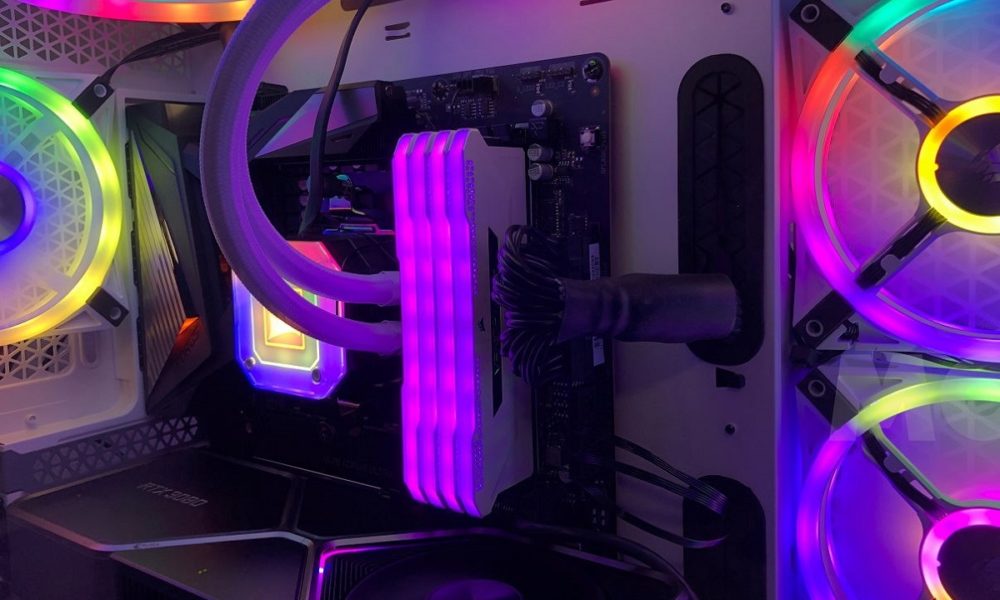
The energy consumption of PC components could take a significant leap with the arrival of the next generation of graphics cards, as long as the leaks we have been seeing are true. This increase in consumption has been linked to an increase in performance, and it is something that we have also been seeing in previous generations, although it has not always occurred at the same level.
For example, the GeForce GTX 1080 was much more powerful than the GTX 980 Ti, but had a much lower consumption thanks to its advances both in terms of architecture and manufacturing process (166 watts vs. 211 watts). The GeForce RTX 2080 also outperformed the GTX 1080, but did so with higher power consumption (215 watts vs. 166 watts) despite advances on both fronts as well.
This progressive increase in energy consumption that we have seen in the graphics cards launched in the most recent generations has not only been motivated by the increase in performance, but also by the introduction of specialized hardware. The RTX 2080 had two core blocks that were not present in the GTX 1080, the RT nuclei and the tensor nucleiwhich speed up ray tracing and AI, respectively.
As is logical, introducing new blocks of cores in the GPU increases its performance, but also its consumption and the heat generated. AMD didn’t have to deal with that problem with the Radeon RX 5000 because it didn’t introduce specialized cores, but With the Radeon RX 6000 the situation changed completely, and it only confirmed what I just explained to you. The simple fact of introducing ray tracing acceleration units made the Radeon RX 6700 XT consume more than the Radeon RX 5700 XT (221 watts vs. 217 watts) despite the efficiency optimizations it received.

Metro Exodus performance with active ray tracing. The GeForce RTX 2060 beats the GTX 1080 Ti. Source: DigitalFoundry.
Higher energy consumption: what does it mean for the user?
Well, an increase in the electricity bill, although its impact will depend a lot on the components we use, and the hours we spend in front of the PC, since obviously the same electrical consumption is not produced playing two hours a day than playing eight hours a day.
For example, a PC configured with a Core i9-12900K, a GeForce RTX 3090 Ti, 32 GB of RAM, nine fans, an AIO liquid cooler and two PCIe SSDs in M.2 format would have a load consumption of 831 watts, which which would leave us with an average expenditure per year of €580.59 (if we pay the kilowatt-hour at 0.26 euros).
That same equipment configured with a Core i5-12600K and a GeForce RTX 3080 would have a power consumption of 606 watts under load, which, following the same pattern as the previous example, would leave us with a cost per year of 440.66 euros. The difference between the two would be 139.33 euros per year, 11.66 euros per month. Both examples are calculated based on average gaming usage of four hours per day. You can perform other calculations using this tool.
A higher energy consumption implies a greater expenditure on electricity, but also represents greater heat generatedwhich makes it necessary to use increasingly powerful cooling solutions. This makes certain components, such as graphics cards, increasingly larger and heavier, with all that this can mean for those with small chassis. On the other hand, we may also need to buy a new power supply if the one we have begins to outgrow this increase in consumption.
Personally, the increase in energy consumption that is taking place right now I’m not worried because I understand why it’s happening, and because it is normal that it is necessary to reach certain levels of performance, especially now that we have hardware that is capable of doing what seemed impossible to us just five years ago. Try running any current ray traced game using a GTX 1080 Ti and you’ll see what happens, then try a GeForce RTX 2060. The first has a consumption of 231 watts, the second remains at 164 watts. And you, what do you think about this topic? We read in the comments.



